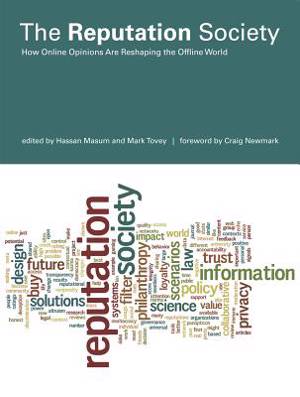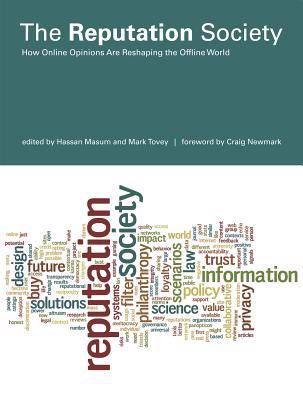
- Retrait gratuit dans votre magasin Club
- 7.000.000 titres dans notre catalogue
- Payer en toute sécurité
- Toujours un magasin près de chez vous
- Retrait gratuit dans votre magasin Club
- 7.000.0000 titres dans notre catalogue
- Payer en toute sécurité
- Toujours un magasin près de chez vous
The Reputation Society
How Online Opinions Are Reshaping the Offline World
Description
Experts discuss the benefits and risks of online reputation systems.
In making decisions, we often seek advice. Online, we check Amazon recommendations, eBay vendors' histories, TripAdvisor ratings, and even our elected representatives' voting records. These online reputation systems serve as filters for information overload. In this book, experts discuss the benefits and risks of such online tools.
The contributors offer expert perspectives that range from philanthropy and open access to science and law, addressing reputation systems in theory and practice. Properly designed reputation systems, they argue, have the potential to create a "reputation society," reshaping society for the better by promoting accountability through the mediated judgments of billions of people. Effective design can also steer systems away from the pitfalls of online opinion sharing by motivating truth-telling, protecting personal privacy, and discouraging digital vigilantism.
Contributors
Madeline Ashby, Jamais Cascio, John Henry Clippinger, Chrysanthos Dellarocas, Cory Doctorow, Randy Farmer, Eric Goldman, Victor Henning, Anthony Hoffmann, Jason Hoyt, Luca Iandoli, Josh Introne, Mark Klein, Mari Kuraishi, Cliff Lampe, Paolo Massa, Hassan Masum, Marc Maxson, Craig Newmark, Michael Nielsen, Lucio Picci, Jan Reichelt, Alex Steffen, Lior Strahilevitz, Mark Tovey, John Whitfield, John Willinsky, Yi-Cheng Zhang, Michael Zimmer
Spécifications
Parties prenantes
- Editeur:
Contenu
- Nombre de pages :
- 220
- Langue:
- Anglais
- Collection :
Caractéristiques
- EAN:
- 9780262016643
- Date de parution :
- 27-01-12
- Format:
- Livre relié
- Format numérique:
- Genaaid
- Dimensions :
- 186 mm x 230 mm
- Poids :
- 635 g

Les avis
Nous publions uniquement les avis qui respectent les conditions requises. Consultez nos conditions pour les avis.





